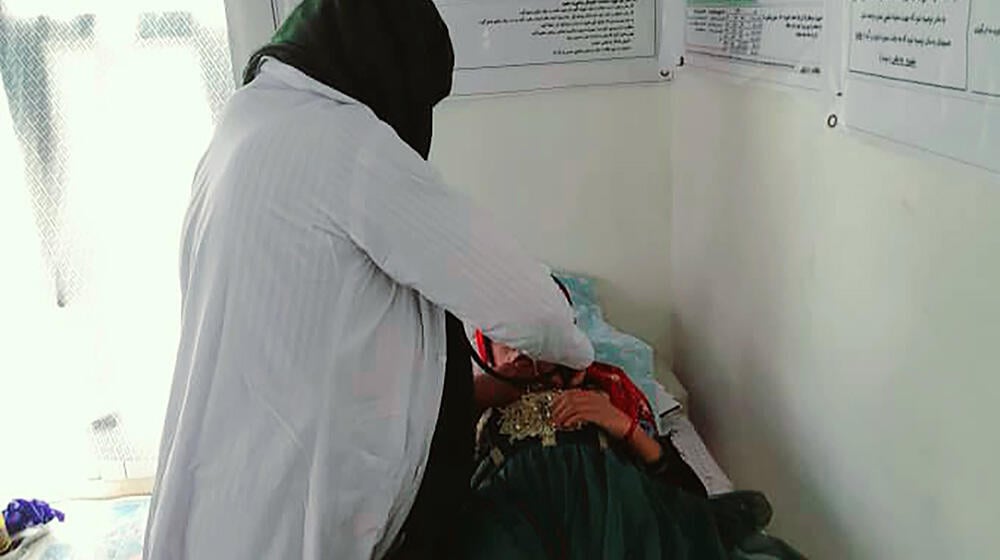Badghis, Afghanistan – Days after delivering her fourth child at home with the help of a traditional birth attendant, Jan Bibi developed fever and experienced body pains that got worse each day, putting her life in danger. Until she stumbled on a Mobile Health Team that provided life-saving midwifery care for her.
“I gave birth to my newborn son at home. My mother-in-law and a neighbor, a traditional birth attendant, assisted me,” Jan Bibi recalls. “I lost a lot of blood, but then everything went well with the delivery.”
The problem started a few days later. “I have not lived a healthy day ever since. I had severe body pain, headache, back pain, and I could not breastfeed my baby because I did not have enough milk,” she says.
“No one in the family went to a midwife for delivery. Our men are often out to work the whole day and the women cannot travel alone outside the village to get to a health facility without a companion,” she explains.
Jan Bibi’s condition worsened each day until four weeks later, she couldn’t bear the pain anymore and asked her husband to bring her to the hospital.
“It was early in the morning and I could not get up even to take care of my child. I told my husband to take me to a hospital, otherwise, I might not live to see the end of that day,” she recounted. “He was worried but we had another problem – we did not have any means of transportation to get to the nearest hospital which is about four hours away.”
Without any other choice, the husband propped her on the donkey, wrapping her and their baby with a blanket and set out to begin the journey to the hospital.
They were approaching the next village when they heard a public announcement from the mosque that doctors and midwives were visiting the village and anyone with a health concern may come. Upon reaching the mosque, she was taken to a house where midwives were attending to patients. They were part of the Mobile Health Team (MHT) visiting the village.
The MHT, funded by USAID, is one of the 134 mobile clinics being supported by UNFPA across Afghanistan to provide free maternal and newborn care to people living in remote and hard-to-reach communities. In Badghis, there are three MHTs supported by UNFPA.
While Jan Bibi was receiving maternal care from the midwife, her husband decided to sit in on a health education session.
“Ever since that day, my husband has been speaking to everyone about midwives, doctors, healthy lifestyle, and other information he learned from the MHT. It was from the health education session that he also learned about the importance of delivering in a health facility,” shares Jan Bibi. The mother is now fully recovered and doing well together with her baby.
Text by Ehsanullah Popal


